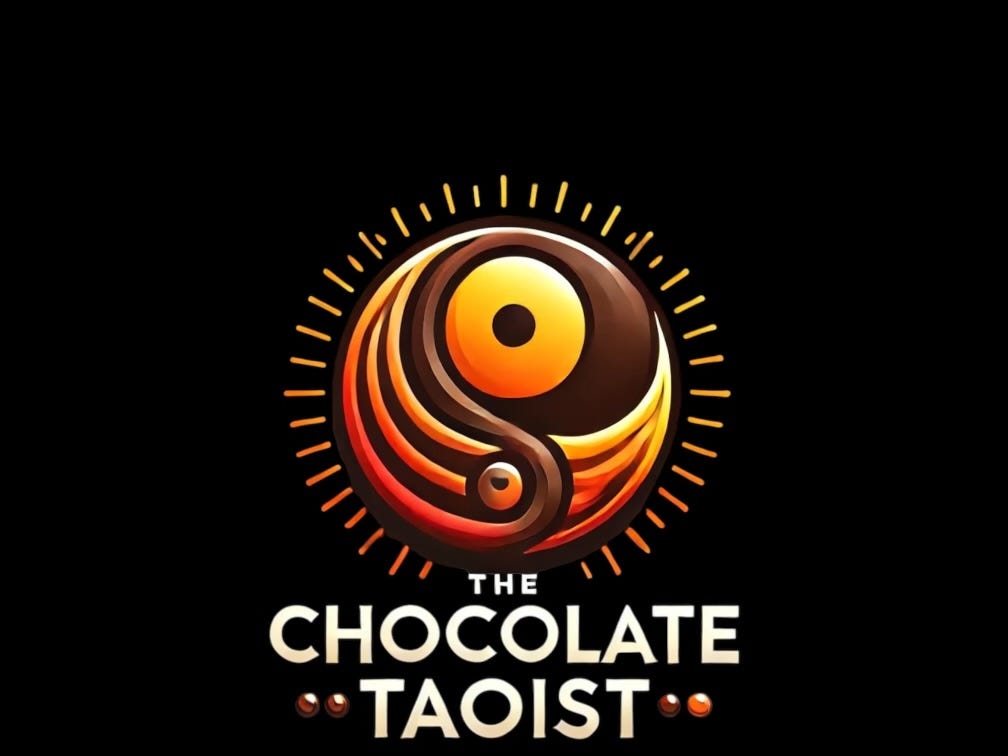Aphorisms are tiny bursts of wisdom, compact enough to fit into a fortune cookie, deep enough to outlast the cookie’s expiration date.
While the West might throw around phrases like “brevity is the soul of wit” or “a stitch in time saves nine,” the East has been quietly perfecting the art of packing timeless truths into pithy sayings for centuries.
Think of an aphorism as a spiritual snack: a small but satisfying bite of insight, usually crunchy with truth and sometimes a little salty with irony.
In the East, where Taoism and Buddhism have shaped much of philosophical thought, aphorisms aren’t just clever wordplay—they are spiritual distillations of life’s greatest lessons. They strip away unnecessary clutter (much like an aspiring minimalist’s wardrobe) and leave us with a core truth that resonates through the ages.
Eastern aphorisms often bypass intellectual reasoning altogether, designed instead to nudge us toward a moment of intuitive clarity.
From a Taoist perspective, the ideal aphorism embodies the principle of wu wei (non-action or effortless action). Just as water flows naturally around obstacles, a good aphorism doesn’t push or shove; it gently guides you toward insight, leaving plenty of space for you to trip into enlightenment at your own pace.
As Laozi might say, “A journey of a thousand miles begins with a single step”—and an aphorism is just that step, a small movement toward understanding the vast and the infinite.
Buddhism takes a similar, albeit more meditative approach. Here, aphorisms serve as reminders to stay grounded in the present moment, teaching us that truth is simple and ever-present if we’re still enough to notice.
They often speak to the impermanence of life and the wisdom of letting go—brief messages that pack a life lesson into a dozen or so words, as effortlessly as the Buddha taught under the Bodhi tree.
Both traditions recognize that contentment is key to navigating life’s ups and downs, and aphorisms often reflect this. They remind us that peace is found not in acquiring more, but in wanting less.
It’s an antidote to our never-ending scroll through life’s distractions, a philosophical Ctrl+Alt+Delete when our minds get cluttered with desires.
Here are some practical Taoist and Buddhist aphorisms that can guide us toward contentment in our lives:
“He who knows enough is enough will always have enough.” — Taoist Proverb
Translation: Stop buying gadgets you don’t need. Inner peace doesn’t come with a promo code.
“The mind is everything. What you think, you become.” — Buddha
Translation: So if you’re thinking you need that fourth cup of coffee to survive the day, you might want to meditate on this instead.
“When you realize there is nothing lacking, the whole world belongs to you.” — Laozi
Translation: Real wealth is realizing you already have more than enough—unless we’re talking about sharing a pizza with a group of friends, in which case you might be right to want more.
“Let go or be dragged.” — Zen Proverb
Translation: Whether it’s an old grudge or that email you drafted in anger—release, before it drags you through a day you can never get back.
“Peace comes from within. Do not seek it without.” — Buddha
Translation: The Wi-Fi may be down, but inner peace isn’t. Don’t count on Netflix to soothe your soul.
“Be content with what you have; rejoice in the way things are. When you realize there is nothing lacking, the world is yours.” — Laozi
Translation: This is a polite way of saying, “Stop complaining about your phone’s camera. It’s your perspective that needs upgrading.
“In the end, these things matter most: How well did you love? How fully did you live? How deeply did you let go?” — Buddha
Spoiler: The answer isn’t found in your LinkedIn profile or Instagram followers.
These aphorisms remind us of the profound wisdom lurking in simplicity, guiding us to the gentle art of being content with where we are, with what we have.
They offer a soft nudge toward understanding that contentment isn’t found in chasing something out there—it’s an internal realization, accessible in the quiet moments we allow ourselves to just be.
In a world filled with distractions, competition, and the constant pressure to do more, aphorisms act like a slap on the back from your most grounded friend.
“Chill,” they seem to say, “you’re already enough.” They cut through the noise, offering clarity when the world gets loud and reminding us that wisdom, like a good aphorism, doesn’t have to be complicated.
So the next time you find yourself spiraling in a sea of want—whether for more success, more stuff, or even just more Wi-Fi signal—pause. Take a deep breath. And remember: sometimes the shortest sentence carries the most truth. Just ask Laozi.
Or, you know, open a fortune cookie.
In short, these sayings aren’t just spiritual sound bites—they’re essential tools for cutting through the unnecessary, offering us a compass when we’re lost in life’s labyrinth of cravings.
They invite us to step back, reflect, and realize that contentment isn’t found in the future but in this very moment, brief and fleeting though it may be. After all, even in a world obsessed with progress, sometimes the wisest thing you can do is be still.
Since 2022, “The Chocolate Taoist” digital newsletter has delivered uncommon nomadic wisdom with the aim of helping you live a more interconnected and expansive life.
If this publication has been a source of wisdom for you then please consider helping me sustain it by becoming a monthly or annual contributor.
For just $6.00/month or $60.00/year, you’ll have the opportunity to share your lived experiences with fellow nomads, fueling fiery discussions that provoke, inspire, and challenge you to think differently.
So I hope you will take the plunge today and contribute to my mission of helping human travelers on this life journey.
Onward and Forward
Diamond Michael Scott aka The Chocolate Taoist






I enjoy aphorisms for all the reason you've highlighted but I would just note that none of those Buddha quotes are actually things Buddha said. Fake Buddha quotes are a long problem in the west. There's a rather humorous website devoted to it https://fakebuddhaquotes.com/ with the clever slogan "I can't believe it's not Buddha!". Often times these Buddhist aphorisms are rough approximations of Buddhist thought, or quotes from prominent Buddhists. For example, "“In the end, these things matter most: How well did you love? How fully did you live? How deeply did you let go?”" is a quote from Jack Kornfield. (His book "After the Ecstasy, the Laundry" is quite good.) So it's probably more fair to say these are Buddhist concepts, but not quotes from Buddha himself. Unfortunately, Buddha quotes tend not to be so short and sweet. Generally, if a Buddha quote sounds like Laozi, it's a good hint that it's not Buddha! Which is somewhat unfortunate because the aphorisms are very enjoyable.
This is fantastic!